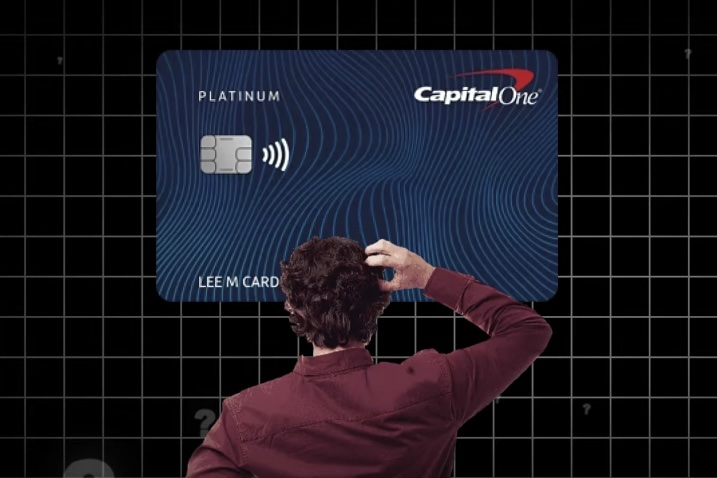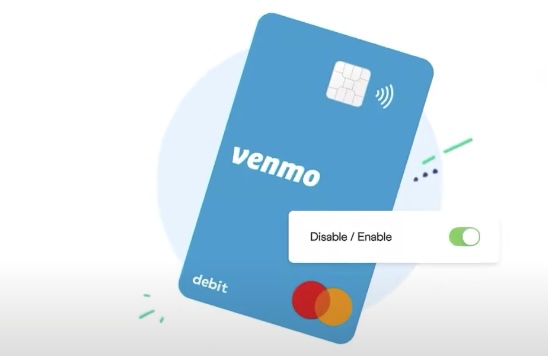When it comes to borrowing money, the legitimacy of the lender is crucial. In this article, we delve into the question: “Is Best Money Loans legit?” We’ll examine what makes a loan provider legitimate, review what borrowers should look for, and address some frequently asked questions about Best Money Loans.
Understanding the Legitimacy of Loan Providers
Before committing to any kind of loan agreement, it is of vital importance that the legitimacy of the lender be confirmed. Several major factors may apply to base the legitimacy of a loan provider.
Licensing and Regulations
Legitimate lenders are also mandated by having relevant licenses that allow their operations within the jurisdictions that they offer their services. In regards to the Lending Industry, issuance of these licenses is to state regulatory bodies in a bid to ensure that they conform to the outlined regulatory measures with respect to the operations within the industry.
For example, Best Money Loans should be licensed within each state. This will generally help the firm abide by the set state regulation and guidelines that determine how services are to be done or offered. They ensure the licensing and effective regulation of the firms. Below is an outlook of the licensing and regulatory matters:
| Aspect | Importance |
| State Licenses | Essential for legal operation, ensuring compliance with state-specific laws and regulations. |
| Federal Regulations | Compliance with federal laws such as the Truth in Lending Act (TILA) and the Fair Debt Collection Practices Act (FDCPA). |
| Consumer Protection | Protection of consumers from predatory practices through adherence to regulatory standards. |
Furthermore, each state may have its own set of licensing requirements and regulations that lenders must meet. For instance, California’s Department of Business Oversight oversees licensing and regulation of lenders operating in the state, ensuring compliance with the California Financing Law (CFL) and other relevant statutes. Similarly, in New York, lenders must adhere to the licensing requirements set by the New York State Department of Financial Services (DFS) and comply with state-specific consumer protection laws.
Transparency
Transparency is a fundamental aspect of legitimacy in lending. Legitimate lenders, like Best Money Loans, are forthcoming about their fees, interest rates, and loan terms. They provide clear and comprehensive information to borrowers, enabling them to make informed decisions. Consider the following elements of transparency:
- Fee Structure: Clear delineation of all applicable fees, including origination fees, late payment fees, and prepayment penalties. Borrowers should have a thorough understanding of the costs associated with their loans.
- Interest Rates: Transparent disclosure of interest rates, whether fixed or variable, and how they are calculated. Lenders should provide clear explanations of any factors that may affect interest rates, such as creditworthiness and loan duration.
- Loan Terms: Clarity regarding the duration of the loan, repayment schedule, and any conditions or restrictions associated with the loan agreement. Borrowers should be fully informed about the terms of their loans to avoid any surprises or misunderstandings.
Moreover, legitimate lenders typically provide borrowers with a Loan Estimate and Closing Disclosure, as required by the Consumer Financial Protection Bureau (CFPB) under the TILA-RESPA Integrated Disclosure (TRID) rule. These documents outline key loan terms, estimated costs, and other pertinent information in a standardized format, facilitating comparison shopping and promoting transparency in the lending process.
Reviews and Reputation
Customer reviews and the overall reputation of a loan provider can offer valuable insights into their legitimacy and reliability. Platforms such as the Better Business Bureau (BBB), Trustpilot, and Google Reviews provide avenues for borrowers to share their experiences and ratings. Assessing reviews and reputation involves:
- Customer Feedback: Reading reviews from past borrowers to gauge satisfaction levels and identify any recurring issues or concerns. Positive reviews may indicate a lender’s reliability and commitment to customer service, while negative reviews may highlight potential red flags or areas for improvement.
- Rating Agencies: Consulting reputable rating agencies and consumer advocacy organizations for objective evaluations of loan providers. Agencies such as Standard & Poor’s, Moody’s Investors Service, and Fitch Ratings assess lenders’ financial strength and creditworthiness, providing valuable insights for borrowers.
Additionally, borrowers can research a lender’s reputation through industry publications, news articles, and professional organizations. Lenders with a strong reputation within the lending community are more likely to be trustworthy and reliable partners for borrowers seeking financing options.
Data Security
Protecting personal and financial data is paramount in today’s digital age. A legitimate loan provider prioritizes data security by implementing robust measures to safeguard sensitive information against unauthorized access and cyber threats. Key considerations for data security include:
- Encryption: Employment of encryption technologies to secure data transmission and storage, mitigating the risk of data breaches. Lenders should utilize industry-standard encryption protocols, such as Secure Sockets Layer (SSL) and Transport Layer Security (TLS), to protect sensitive information from interception and unauthorized access.
- Compliance: Adherence to privacy laws and regulations, such as the General Data Protection Regulation (GDPR) and the Gramm-Leach-Bliley Act (GLBA), to ensure the lawful handling of consumer data. Lenders should establish and maintain robust data privacy policies and procedures, conducting regular audits and assessments to ensure compliance with regulatory requirements.
Furthermore, legitimate lenders undergo independent third-party assessments and certifications, such as SOC 2 Type II and ISO 27001, to validate their adherence to industry best practices and standards for data security and privacy. These certifications demonstrate a lender’s commitment to protecting customer data and maintaining the confidentiality, integrity, and availability of sensitive information.
Signs of Illegitimacy in Loan Providers

In the quest to determine the legitimacy of loan providers like Best Money Loans, it’s essential to recognize potential red flags that may indicate illegitimate practices. By being vigilant and aware of these signs, borrowers can protect themselves from scams and predatory lending practices.
Upfront Fees
One of the most common signs of illegitimacy in loan providers is the demand for upfront fees. Legitimate lenders typically do not require borrowers to pay any fees before the loan approval process is complete. However, illegitimate lenders may ask for upfront fees under various pretexts, such as processing fees, administrative fees, or insurance fees. Here’s a breakdown of the significance of upfront fees:
- No Upfront Fees: Legitimate lenders do not request payment of fees until after the loan is approved and the funds are disbursed.
- Red Flags: Demands for upfront fees before loan approval may indicate a scam or illegitimate lending operation.
- Consumer Protection: Regulatory agencies often warn consumers to be cautious of lenders that require upfront fees, as it is a common tactic used by fraudsters.
Furthermore, legitimate lenders are transparent about any fees associated with the loan and include them in the loan agreement. Borrowers should carefully review the terms and conditions before agreeing to any upfront fees to ensure they understand the purpose and amount of the fees.
Vague Terms
Another warning sign of illegitimacy in loan providers is the presence of vague or ambiguous loan terms. Legitimate lenders are transparent about all loan conditions, including interest rates, repayment terms, and any associated fees. Conversely, illegitimate lenders may withhold crucial information or use deceptive language to obscure unfavorable terms. Consider the following aspects of vague terms:
- Disclosure: Legitimate lenders provide clear and comprehensive disclosures of all loan terms and conditions upfront, ensuring that borrowers fully understand the terms of the agreement.
- Clarity: Ambiguous or convoluted language in loan agreements may indicate an attempt to mislead or deceive borrowers, prompting them to scrutinize the terms more closely.
- Consumer Rights: Borrowers have the right to request clarification on any unclear or confusing terms and should not hesitate to seek legal advice if necessary.
To avoid falling victim to deceptive practices, borrowers should carefully review all loan documents and ask questions about any terms or conditions that are unclear or confusing. Legitimate lenders are typically willing to provide clarification and ensure that borrowers fully understand the terms of the loan.
High-Pressure Sales Tactics
Illegitimate lenders often employ high-pressure sales tactics to coerce borrowers into signing loan agreements hastily. These tactics may include aggressive marketing campaigns, incessant phone calls or emails, and deadlines for accepting loan offers. Borrowers should be wary of any lender that exerts undue pressure or creates a sense of urgency to secure a loan. Here’s why high-pressure sales tactics are concerning:
- Informed Decision-Making: Borrowers should have sufficient time to review and evaluate loan offers carefully, weighing the pros and cons before making a decision.
- Risk of Misrepresentation: High-pressure tactics may lead borrowers to overlook critical details or agree to unfavorable terms without fully understanding the implications.
- Consumer Advocacy: Regulatory agencies and consumer advocacy organizations advise borrowers to exercise caution when encountering lenders that employ high-pressure sales tactics, as they may be engaging in deceptive or predatory practices.
Conclusion
The question “Is Best Money Loans legit?” can be answered affirmatively based on regulatory compliance, user reviews, and their adherence to industry standards. However, as with any financial decision, it’s imperative to do thorough research and consider all available options before proceeding with a loan.
FAQ
Yes, Best Money Loans is considered a legitimate entity by various business oversight bodies and has numerous positive online reviews. Always check their latest regulatory status to ensure compliance.
Verify Licensing: Ensure they are licensed to operate in your state.
If you encounter issues, you can report them to the Consumer Financial Protection Bureau (CFPB) or your state’s attorney general’s office.
Yes, consider other reputable lenders or explore options like credit unions, which often have competitive rates and favorable terms.



